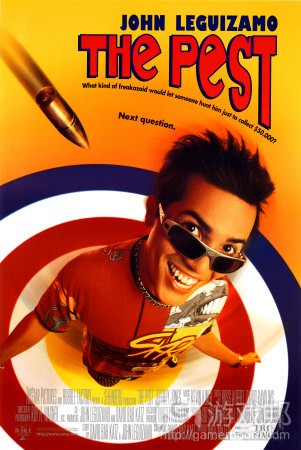评述移动游戏公开发行的7大误区
作者:Luis Levy
1. 于周五发行游戏
周五是某些糟糕公司发布消息的时刻,所以此时发行作品容易被忽视。因此若你希望游戏脱颖而出,就选择在周二、周三或周四之类的工作日发布。另一避开周五的原因是西海岸的周五早晨是英国的晚上,所以你将会错失欧洲众多流连酒吧的人群。
2. 未制作预告片
如今预告片必不可少。它们是Gizmodo和Slide to Play之类网站帖子蕴含的必不可少元素。通过预告片,用户和新闻媒体能够获悉游戏动态外观和音效,总而言之,这能够呈现除机制外的优质游戏内容。所以确保在作品发行前制作30秒-1分钟的预告片。
3. 使用当“托儿”的技俩
这是指发行人员假装自己是普通大众,为推广游戏在App Store或Android Market给出高分或好评。最近著名发行公司被暴进行此勾当,因而在潜在用户、新闻界和iPhone用户中形成负面形象。不要采取当“托儿”策略。一不小心你就会被当场抓获,然后公诸于众。
4. 作品推出两周后调整定价/商业模式
定价和移动应用/游戏始终是谈论焦点。有部分人认为99美分模式是游戏发展出路,因为这能够促使作品覆盖大量用户(游戏邦注:就像《愤怒的小鸟》模式)。而其他人则认为所有作品或应用在价格层次中都有自己的位置,所以拥有细分市场或高制作价值的作品需以更高价格售出。这就是EA和动视所采取的策略,有关这点我非常赞成他们的做法。没有什么比最初以1.99美元价格发行作品,但随后由于销量不佳快速把价格降至99美分更糟;或者是信心百倍地采取内在付费免费模式,最终却发现无人购买虚拟商品,因此只好迅速推出付费版本。不要在作品推出期间更改发展路线。坚持原有策略,不要忽视定价问题的重要性,在最初阶段就做出正确决策。
5. 通过电子邮件/电话/语音留言骚扰新闻媒体
新闻人士和你一样繁忙。他们付出大,报酬低。你只要发封邮件,留条语音信息就够了。
就是这样。
不要每天发送很多电子邮件或留多条语音信息。也不要反复打电话,他们或许有在办公室,但因为任务急迫没时间接电话。烦扰记者最易促使作品同美好前途失之交臂。无新闻=无曝光=微薄销量。
6. 未向网站提供促销券/付费帐户
向新闻媒体提供游戏促销券。不要让他们自己掏钱购买。此外,若游戏是款MMO,让他们知道沉浸游戏数小时后,角色实力就能最大化,这样他们就能访问整个游戏世界。不要让用户为访问所有内容连续体验10-15小时。记者们有更重要的事情需要完成。最后是条建议:美国促销券在欧洲无法使用。若目标发行区域是欧洲,你需制作欧洲券(游戏邦注:或通过Paypal进行退款)。
7. 未在Twitter/Facebook曝光
Twitter是你同用户保持日常联系的优质渠道。你可以让他们知道工作室目前正在制作一个补丁,大量免费样品2天后将开始发出。而Facebook则更具社区理念或归属感。你可以在Twitter“发布公告”,但需明白每个帖子将有很多评论。所以不要认为所有人都会喜欢你所陈述的内容,不要忽视批评出现的可能性。无论如何,你都要通过Twitter和Facebook给予回应,融入粉丝当中,回答他们的问题。适时发布工作室照片、有趣视频和小诀窍,从中你将受益良多。(本文为游戏邦/gamerboom.com编译,如需转载请联系:游戏邦)
The 7 Deadly Sins of PR for Mobile Games
by Luis Levy
1. Launching on a Friday
Fridays are when bad, bad companies like BP put news out so it gets BURIED. Therefore, if you need your game to stand out, the whole idea is to launch on a productive day like Tuesday, Wednesday or Thursday. Another reason to avoid Fridays is the fact that Friday morning in the West Coast is Friday night in the UK, so you will lose most (if not all) Euro pubs.
Go here for a great top ten of “buried news: http://www.poynter.org/content/content_view.asp?id=14489
2. Failing to produce a trailer
Trailers are essential nowadays. They’re a basic complement to posts in sites like Gizmodo or Slide to Play. Through trailers, customers & press alike can understand how the game looks and sounds in motion — in short, how polished the whole thing is except for pure gameplay. So make sure to have a 30-second to 1 minute trailer ready for launch.
Here’s a great example: http://www.youtube.com/watch?v=5MlT6jX4l_w
The game is Hi, How Are You, an iPhone game created with the help of Daniel Johnston.
3. Engaging in astroturfing
Astroturfing is when PR pros & interns pretend they are the common folk in order to give games they represent great scores/reviews in the App Store or the Android Market. Recently, a famous PR firm was caught doing it, making them look really bad to both prospective clients, the press and iPhone users. NEVER, EVER engage in astroturfing. You can easily get caught red-handed and in full public display.
4. Changing the price / business model two weeks after launch
Pricing and mobile apps/games is always a point of contention. There’s a whole school of thought preaching that $0.99 is the place to be since it allows for mass penetration and wide distribution (the Angry Birds model). Others believe every game or app has it’s rightful place in the Great Pricing Pyramid — so games with a niche audience or high production values demand a higher price. That’s what EA and Activision do and I’m with the big boys on this one. However, there’s nothing worse than launching at, say, $1.99 then quickly dropping the price to $0.99 if lacking in sales. Or going for the whole in-app purchases bonanza only to find out no-one is buying — therefore immediately launching a premium (paid) version. Don’t change horses in the middle of the race. Stick to your guns — hopefully, you didn’t take the whole pricing issue lightly and made a great choice in the first place.
5. Pestering the press with multiple emails/phone calls/voice messages
The press is busy just like you. They work hard and are often underpaid. It’s perfectly fine to send them one email and leave one voice message.
That’s it.
Don’t email them multiple times per day or leave multiple voice messages. Don’t keep calling either — maybe they are at their desk, but can’t pick up the phone due to a major deadline. Annoying journalists is the shortest path to getting ignored for the foreseeable future. No press = no coverage = tiny, tiny sales
6. Failing to provide sites with promo codes / premium accounts
Give the press promo codes of your game. Don’t make them buy it. Also, if your game is an MMO, let them know you can max out their character after a couple hours in-game so they get to see the whole world. Don’t make them play 10-15 hours straight just to have access to all the content — journalists have better things to do with their time. Finally, a word of warning: U.S. promo codes won’t work in Europe. If a target publication is in Europe — like the aptly-named Eurogamer — you’ll need to produce Euro codes or possibly reimburse them via Paypal.
7. Having no presence on Twitter/Facebook
Twitter is great to keep in touch with your fans on a day-to-day basis. You can let them know a patch is in the works — or that this massive giveaway starts in two days. Facebook, on the other hand, fosters a sense of community, of belonging. You can still “broadcast” like in Twitter, but you need to understand every post will have lots of comments under it. So don’t assume everyone will love everything you say — expect criticisms from time to time. No matter what, use Twitter and Facebook to RESPOND as well. Engage your fans. Answer their questions. Post pictures of the studio, goofy videos, tips & tricks. You’ll thank me later.(Source: Gamasutra)









































 闽公网安备35020302001549号
闽公网安备35020302001549号